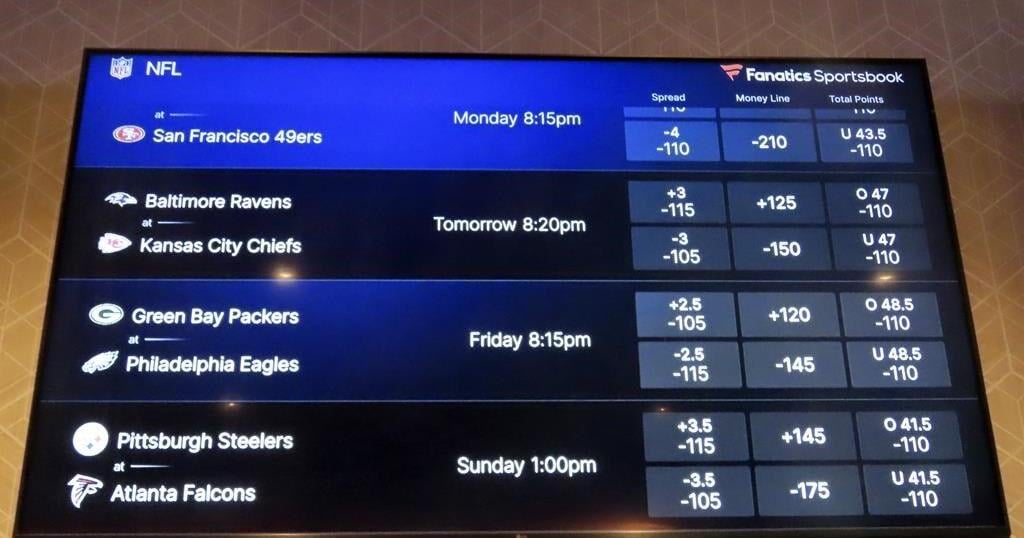ATLANTIC CITY, N.J. (AP) — Ten percent of young men in the U.S. show behavior that indicates a gambling problem, compared to 3% of the general population, a new study says.
The Fairleigh Dickinson University survey comes as the National Council on Problem Gambling examined every U.S. state’s gambling laws, finding that customer protection against developing or worsening gambling problems varies widely and could be improved everywhere.
“Gambling is generally marketed as entertainment, and for most gamblers, it’s just that,” said Dan Cassino, a professor of government and politics at Fairleigh Dickinson, and the executive director of the survey, which was released Thursday. “But there’s always some chance of gambling turning into problem behaviors, and online gambling is proving to be much more dangerous than other kinds.”
He said the risks “are closely related to online betting on sports and online slot machines.”
Arnie Wexler, a well-known advocate for people with gambling problems and the former head of New Jersey’s Council on Compulsive Gambling, said young people and their parents constantly contact him for help. He was not involved in the survey.
“All the gambling going on, it’s addicting so many people, and so many young people,” said Wexler. “It’s gotten crazy what’s going on today. We are a nation of addicted gamblers.”
The survey asked respondents to answer the Problem Gambling Severity Index, a nine-question battery asking about several indications of problem gambling behaviors like borrowing money to gamble, or saying that their gambling has caused financial or emotional problems.
Twenty-four percent of men reported at least one problem behavior, but that rose to 45% for men 30 and under.
Individuals are generally considered to have a problem if they have a score of 8 or above on the index. Only about 3% of men scores that indicate a gambling problem, but that figure is 10% among men ages 18 to 30 and 7% among women in the same age group.
The nationwide survey of 801 registered voters, conducted between Aug. 17 and 20, has a margin of error of plus or minus 3.5 percentage points.
The gambling industry has adopted responsible gambling standards, which include allowing people to set limits on their deposits, withdrawals and overall gambling activity; prominently placing phone numbers and web addresses for gambling help lines on their products, and adopting some voluntary limits on advertising.
The National Council on Problem Gambling examined gambling laws in every state, looking at how well they align with the most effective player protections in the group’s internet responsible gambling standards.
The council’s report, released Thursday, found that Connecticut, New Jersey, and Virginia are most aligned with the standards, meeting 49 of 82.
Ten states and Washington, D.C., met 40 or more of the standards: Colorado, Connecticut, District of Columbia, Louisiana, Massachusetts, New Jersey, New York, North Carolina, Pennsylvania, Tennessee, and Virginia.
Nine states met between 25 and 39 of the standards: Arizona, Illinois, Indiana, Maine, Maryland, Michigan, Ohio, Oregon, and Vermont.
And 11 states met between 10 and 24 of the standards: Arkansas, Delaware, Florida, Iowa, Kansas, Kentucky, New Hampshire, Nevada, Rhode Island, West Virginia, and Wyoming.
“This report reflects the patchwork nature of existing regulations and the significant gaps in consumer protections,” said Keith Whyte, the group’s executive director. “We urge legislators and regulators to take immediate steps to close these gaps and work to mitigate gambling-related harm.”
___
Follow Wayne Parry on X at www.twitter.com/WayneParryAC
